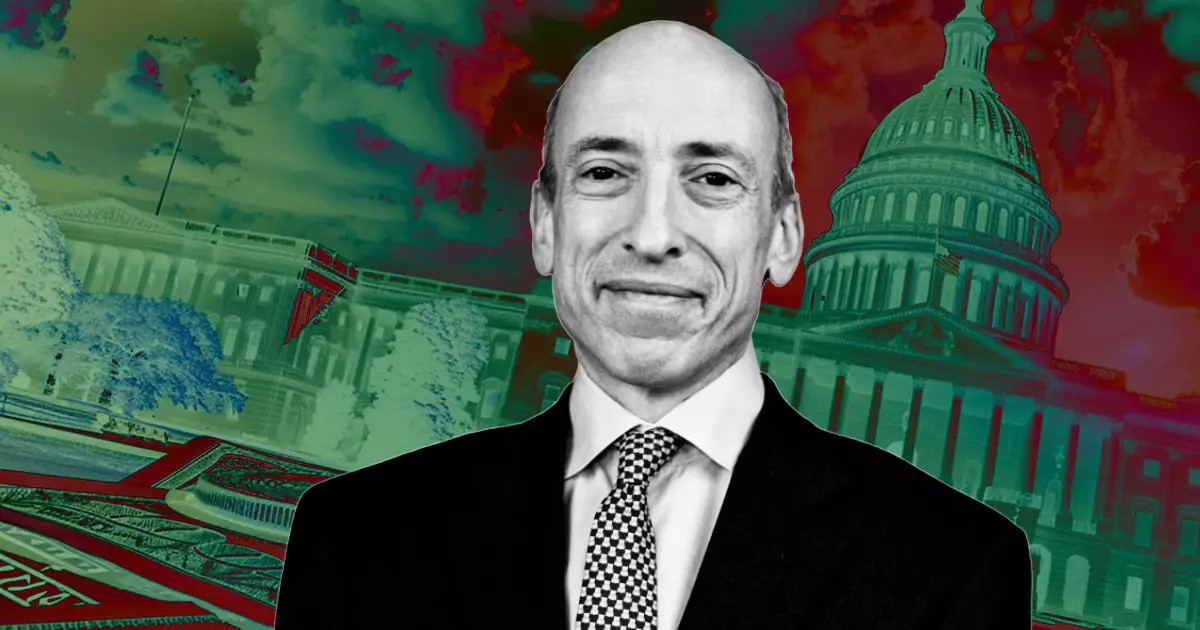The Financial Innovation and Technology for the 21st Century (FIT21) Act has been a topic of much debate within the crypto industry. While many celebrate the bill for providing regulatory clarity, Chairman of the US Securities and Exchange Commission (SEC), Gary Gensler, has come out strongly against it. Gensler argues that the bill, if passed, would actually weaken current consumer protections in the crypto market. This stance raises serious concerns about the potential risks that could arise from this legislation.
One of the main points of contention raised by Gensler is the significant regulatory gaps that the FIT21 Act would create. He believes that these gaps could undermine decades of precedent in overseeing investment contracts, ultimately putting investors and capital markets at substantial risk. In particular, Gensler warns that the bill could enable crypto investment contract issuers to self-certify their products as decentralized, effectively removing them from SEC oversight. This move could open up opportunities for abuse and manipulation within the market.
In addition to the regulatory gaps, Gensler is critical of the FIT21 Act for abandoning the Howey Test, a key method for determining whether an investment qualifies as a security. By moving away from this established framework, Gensler argues that the bill would result in reduced protections for investment contracts that are considered securities. This change could leave investors vulnerable to fraudulent schemes and scams, as well as hinder the SEC’s ability to effectively regulate the market.
Furthermore, Gensler highlights the risks associated with excluding crypto asset trading platforms from being classified as exchanges under the bill. He believes that this move could create loopholes that would allow firms to evade enforcement actions more easily, posing a significant threat to the American capital market and its investors. This criticism underscores the need for comprehensive and balanced regulation that prioritizes investor protection and market integrity.
Despite Gensler’s strong opposition, the FIT21 Act has garnered support from both the US Congress and the crypto community. Congressman French Hill, the Chairman of the Subcommittee on Digital Assets, Financial Technology, and Inclusion, has voiced his approval of the bill, stating that it gives the SEC the necessary authority over digital assets. Additionally, several prominent crypto companies and advocacy groups have urged lawmakers to support the legislation, citing the need for regulatory clarity and consumer protection.
The Crypto Council for Innovation (CCI) has also expressed its support for the bill, noting that while it may introduce new compliance challenges for digital asset companies, it ultimately represents a more responsible and safer approach to regulation. However, it is important to consider whether the potential benefits of regulatory clarity outweigh the risks of weakening consumer protections and oversight within the crypto market.
The debate surrounding the FIT21 Act highlights the complex challenges associated with regulating the ever-evolving crypto industry. While regulatory clarity is essential for fostering innovation and protecting investors, any legislation must be carefully crafted to avoid unintended consequences. As the bill awaits a vote in the US House of Representatives, it is crucial for lawmakers to carefully consider the implications of their decision and strive towards a regulatory framework that balances innovation with investor protection.

